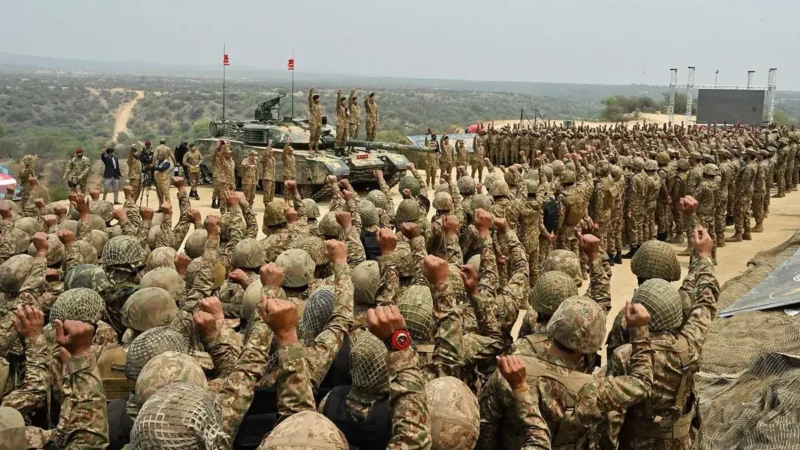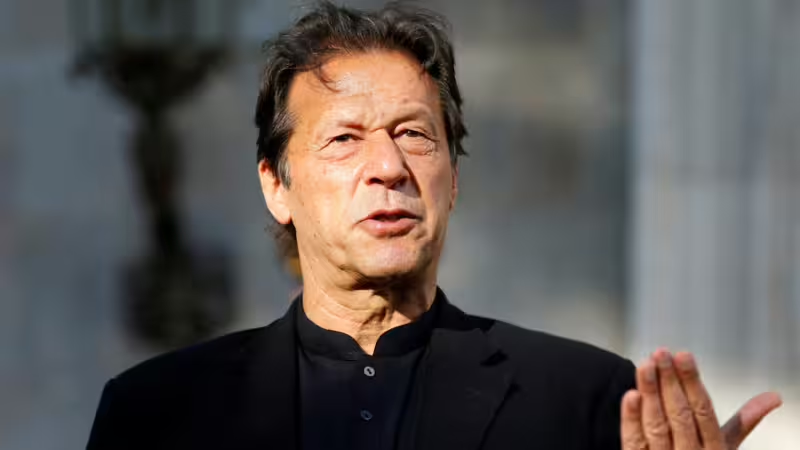In shameful surrender, Pakistan government makes a deal with Abdul Aziz of Lal Mosque

Advertisement
In an agreement with the government, the famed Maulana Abdul Aziz of Pakistan’s Lal Masjid has vacated Lal Masjid G-6 on Monday and moved to the madrassah Jamia Hafsa in G-7 along with his family.
Both the mosque and seminary in G-6 are government-owned property.
In addition, Maulana Aziz and his family will not be allowed to enter the mosque for two months. Haroon Rasheed, son of Abdul Rashid Ghazi and son-in-law of Aziz, took over the administration of the Lal Masjid.
The deal was brokered last week with the help of Ahle Sunnat Wal Jamaat leader Maulana Ahmed Ludhianvi, who was previously banned under the Anti-Terrorism Act.
Both Maulana Abdul Aziz and Islamabad DC Hamza Shafqat have refused to talk further about the agreement. But the Haroon Rasheed told the media that Muhammad Ahmed Ludhianvi acted on behalf of the government of Pakistan as a guarantor of the deal.
According to the agreement, Maulana Aziz will be free to travel all across Pakistan at his own will after two months.
In February 2020, Maulana Aziz occupied the state-owned mosque Lal Masjid, claiming to be its rightful orator. The move was ignored by the authorities, until later when approximately a hundred female students of Jamia Hafsa from G-7, broke into another sealed building of a seminary at H-11. It was then that the Islamabad administration approached Maulana Abdul Aziz to resolve the matter, but the cleric insisted that a Federal Minister be engaged to negotiate with him.
The maulana continued to deliver an aggressive Friday sermon against state authorities, saying that he would not abide by orders of a state that followed “international agenda”.
According to sources, the Interior Ministry said that it received orders from ‘higher-ups’ to resolve differences with Maulana Aziz through talks rather than by force.
Maulana Aziz’s violation of lockdown orders was even raised in the National Command and Operation Center during which Interior Minister Ejaz Shah said that legal action will be taken against Maulana’s provocative sermons.
Two months later, instead of any action, the government has yet again decided to appease the Maulana. Even now it is not clear whether differences have been resolved or if the deadlock will continue as it has since 2007.
Presently, Maulana Aziz not only wants to be restored as the ‘khateeb’ (orator) of Lal Masjid but also demands Rs. 250 million along with a large chunk of land to build Jamia Hafsa, as well as possession of the children’s library adjacent to the mosque.
In February, the Islamabad Capital Territory reached an agreement with Maulana Aziz to let him stay in the mosque as long as he does not deliver sermons encouraging people not to follow government advice on lockdown and social distancing.
Maulana Aziz has also demanded that the building of Jamia Hafsa, which was previously demolished for being illegally constructed on government property, should be reconstructed adjacent to Lal Masjid.
As a consequence of the military operation in 2007, the government and the mosque administration agreed for Jamia Hafsa to be reconstructed at an alternative site, to be provided by the CDA. However, in 2012, the Supreme Court canceled the allocation of the 20-Kanal plot in H-11 that was issued to Maulana for the construction of the seminary.
The question over Maulana Ahmed Ludhianvi’s involvement in these negotiations also lingers since he belongs to a banned sectarian outfit.
In the last 12 months, three cases have been filed against Maulana Aziz for flouting SOPS and violating lockdown orders under section 144 (placed to limit the spread of coronavirus), 270 (malignant act likely to spread infection of disease dangerous to life) and 188 (disobedience to public order duly promulgated by public servant).
According to police officials, Aziz not only led the weekly congregational prayer without taking any precautionary measures but also openly displayed weapons.
It remains a pertinent question as to why the current and previous governments have refrained from taking any strict action against Maulana Aziz.
Sources say that despite the latest agreements, the conflict remains far from being resolved, and in fact, the recent deal could be interpreted as a shameful surrender, as the state officials seem to be on-board with the current government.
Advertisement





